
Is Bone Broth Good For IBS? Benefits, Side Effects and How to Make it
Ultimate Guide to Bone Broth for IBS
If you're suffering with IBS, then you know how debilitating it is. The good news is that certain things and diet can help relieve your flare up asap.
One of the best meals for IBS relief is bone broth. But not just any product will do the trick, you need one with at least 3 g of glycine per serving.
The perfect bone broth for IBS is made by Bluebird Provisions. It is specifically formulated the recipe to get glycine and other gut friendly amino acids into the finished product.
We'll discuss what other bone broths may help and how sleep fits in below.

What is IBS?
IBS is an acronym for Irritable Bowel Syndrome. It's a common problem that affects the large intestine (colon). Complications include cramping, bloating, gas and diarrhea or constipation.
It is thought that stress, food sensitivities and intolerances contribute to IBS. IBS affects 10-15% of the population, so if you're suffering then know that you're not alone.
The three types of irritable bowel syndrome include IBS-C (constipation), IBS-D (diarrhea) and IBS-M (mixed). In severe cases, additional health problems like malabsorption or weight loss may be risk factors for the disease.
What is the colon?
The colon is also known as the large intestine. It's where nutrients from digested food get absorbed into your body before you poop it out. The lining of the
What Causes IBS?
Inflammation and Leaky Gut are the two main causes of IBS. Inflammation leads to damage, while leaky gut allows toxins into the bloodstream. Here's how it plays out.
The typical American diet is high in processed foods and very little fiber. A poor diet triggers the onset of irritable bowel syndrome due to unprocessed food particles slipping through your gut into your bloodstream.
How do they do this? From a lifetime of eating inflammatory things and meals you are sensitive too but may not know it. These foods cause gut inflammation or tiny holes in your gut that allow food particles to pass through.
Common IBS inflammation Triggers:
- Gluten is a common food sensitivity which often goes hand in hand with it.
- Inflammation that causes damage to the intestines.
- Leaky gut occurs when the lining of the intestines becomes damaged or weak, which allows toxins and other substances into the bloodstream.
- Medications can cause it on occasion.
- Sedentary lifestyle may contribute to it.
- It is occasionally caused by muscle aches or frequent urination.
- Poor sleep
What Are the Common Symptoms of IBS?
Some common symptoms of IBS include abdominal pain, cramping and bloating. Another common symptom is diarrhea or constipation which can be a mix of both.
IBS is not diagnosed by a single test, but rather through the presence of certain issues. To make things confusing, there are two schools of thought when it comes to diagnosing IBS: Rome's and Manning's criteria.
Diagnosing IBS: The Rome Criteria
The Rome criteria is more common and accepts the typical IBS related symptoms as normal. Rome seeks physical inputs of IBS while Manning focuses on pain.
The Rome criteria for IBS says that you have to have at least three of the following:
- Pain relieved with defecation
- Abdominal distention or bloating
- Passage of mucus (this can be clear, yellow, or green)
- Change in bowel habits that have lasted for at least 3 days over the past 12 months
Manning Criteria
The Manning criteria are more strict, with conditions taking place before age 20 being considered IBS. The complications with irritable bowel syndrome are pain relieved by a bowel movement, loose stools with pain, more frequent stools with pain, bloating and passing mucus.
How Stress and Sleep Play a Role in IBS Symptoms
Managing stress is a key to living with IBS. Why? It directly affects IBS through the gut-brain axis, and many patients report higher incidence of depression.
Your gut is connected to your brain via the vagus nerve. This nerve is the reason you get butterflies in your stomach when you're nervous.
As such, It's important to take care of your physical and mental well being. Take steps to remove unnecessary stress if your life like toxic relationships, work and interpersonal issues.
If you're feeling overwhelmed, ask for help from your network or seek counsel in the form of a mental health professional. Having a support network is crucial to overcoming IBS.
Cognitive behavioural therapy, dynamic psychotherapy, hypnotherapy and relaxation therapy are effective in managing the stress and anxiety that accompanies IBS.
Finally, proper sleep can not be ignored. You must take steps to get more sleep. These include getting daylight into your eyes first thing in the morning, avoiding caffeine late afternoon and unwinding with limited food and screens 90 minutes before bed.
Mindfulness and Meditation Health Benefits
Mindfulness practices can help alleviate stress too. A basic practice involves a vipassana meditation where you simply sit in silence and count your breaths in and out.
You can also try a 'box breathing' practice where you inhale for 5 seconds, hold your breath for 5 seconds, then exhale for 5 seconds.
Long, slow exhales are shown to stimulate your vagus nerve, which directly helps your relax my activating your parasympathetic nervous system or rest and digest sleep system.
Loneliness and Depression Affects Your Digestive System
Mental health is incredibly important to IBS. And it all starts with sleep because insufficient sleep may be linked to IBS symptoms.
Research is showing that depression is closely linked to loneliness. It is a major factor in depression.
A support network is more critical than ever for individuals with IBS, to try and alleviate feelings of loneliness which may lead to depressive issues.
Does Diet Help IBS and Gut Health?
Diet can help keep IBS at bay and can be a helpful tool for identifying triggers. But where do you start?
An elimination strategy is step one in order to understand food intolerances that you may have.
Foods to avoid during your elimination include gluten, high-FODMAPs, nuts and seeds, alcohol, dairy, inflammatory foods and processed junk food.

Sounds terrible right? It is important to note that you do not need to swear off them forever. We just need to figure out specific triggers for you.
A low-FODMAP, anti inflammatory method is not meant to be a long-term solution to IBS. FODMAPs can be reintroduced if symptoms subside.
FODMAPS are not good foods for IBS
FODMAP is the acronym for Fermentable Oligo, Di-Monosaccharides, And Polyols.
FODMAPS are carbohydrates that are poorly absorbed in the small intestine and can be fermented by bacteria in the large intestine.

Here are some high-FODMAP things to avoid while in a flare up:
- Artichokes
- Beans
- Apples
- Cauliflower
- Wheat
- Onions
- Garlic
- Broccoli
- Cabbage
- Watermelon
What are the benefits of bone broth for IBS?
The benefits of bone broth for IBS are that is helps heal gut inflammation, leaky gut and helps with protein malnutrition.
Bone broth has been found to help those with IBS, especially in states of protein malnutrition.
This is because it has properties to help support both gut health and nervous system functions.
It is high in amino acids proline and glycine which have potent medical properties. They reduce gut inflammation and build connective tissue to promote digestive health and nervous system function.
In recent years, bone broth has been gaining attention in the medical community for its digestive benefits.
How Bone Broth Heals Your Gut and Stomach
Bone broth heals your gut by seeding it with healing amino acids / minerals glycine, gelatin glutamine and proline. Here's how each of them work together to heal your leaky gut.
- Glycine - Helps tighten the little holes in your gut by laying down new connective tissue.
- Glutamine - an amino acid that acts as a fuel source for your gut and intestinal cells.
- Gelatin - a cooked version of collagen that assists in digestion and absorption of nutrients.
- Proline - an amino acid that helps heal wounds to promote gut health.
Is There A Low FODMAP Bone Broth?
There is a low FODMAP bone broth made by Bluebird Provisions. This Chicken Bone Broth Powder has no onions, garlic or other FODMAP ingredients.
The only inputs are Water and Chicken Bones (Non GMO and Pasture Raised).
You see, bone broth must be modified for IBS sufferers, but should help with symptoms.
This is because the use of high FODMAPs can aggravate gut symptoms in some people. And most bone broth has FODMAP ingredients.
But bone broth also has many benefits if used correctly and without these harmful inputs.
Virtually all store-bought or bone broths you find online will have FODMAPS, so be careful.
Here is a list of brands you can trust.
Beef Bone Broth Recipe for IBS
Bone broth can help IBS sufferers in many ways, as well as being easy to make at home. Here is a simple bone broth recipe for IBS.
Ingredients:
- 1-2 kg beef marrow / knuckle bones with cartilage (2-5 pounds) (grass-fed, organic)
- 2 bay leaves
- 1 tablespoon peppercorns
- 1 tsp turmeric
- 1 carrot, chopped (optional)
- 1 tablespoon avocado oil
- Water to cove the bones plus 2 inches extra
- 7 Qt Crock-Pot / Slow Cooker or modify to your sized pot

Directions:
- Rub oil on bones, place on baking sheet and bake at 400 F for 45-55 minutes
- Place bones in slow cooker
- Cover bones with water and add extra 2 inches
- Cook on high for 16-24 hours
- Add remaining stuff for the last 2-3 hours of your total cook time
- Strain solids from liquids
- Skim fat layer from top and store or discard
- Store in freezer bags or glass jars for use
- Can be stored for 5 days in fridge or 6 months in your freezer
Are there any side effects of bone broth for IBS?
There are no side effects of bone broth for IBS provided that you are drinking a product that is low in FODMAPS.
Some products are full of onions and garlic which may cause gut issues and flare ups. You are best to check the ingredient list before consuming.
Bluebird Provisions is one trustworthy brand that makes low FODMAP bone broth powder full of healing minerals.
How can I incorporate bone broths into my diet?
You can easily incorporate bone broth into your diet by drinking one cup in the morning or afternoon before a meal. This will give you gut healing protein and gelatin to relax your gut and prepare it for incoming meals.
The goals is to get at least 5 servings or cups of real, authentically made bone broth per day. From here you can use bone broth in your daily cooking. See our new recipe book for more, but here's a few suggestions:
- Swap it for water when you cook rice, oatmeal or any grains
- Sauté or steam your vegetables or stir frys using it
- Swap it for milk or juice in your smoothie
- Make soup, stew or any sauce with it
- Use it in your salad dressings
- Drink one cup before bed for better sleep
What are the best foods to eat with IBS?
You can focus on gut healing foods to help your IBS. These include eating more vegetables, getting plenty of fluids and adding fats.
Gently cooked vegetables like sweet potatoes, parsnips and squash may help relieve IBS-C symptoms.
For fruit it is best to stick to peeled fruits like bananas. Anything with skin might irritate you if you're in a flare up.
Consume fermented foods can help to rebalance your gut to build a healthy gut flora.

Juicing and smoothies are a great way to get electrolytes and other nutrients, even if you have IBS-D (which can dehydrate).
Adding healthy fats, cartilage and fatty fish like salmon to your diet may improve the health of the brain which is important for gut health too.
Remember to stay hydrated and drink at least six glasses of water per day. It is also important that you don't combine hot and cold foods in the same meal.
Final Word Plus a Discount
IBS is awful but there are things you can do to reduce flare ups and get control of your digestive health.
Bone broth is the best remedy for IBS flare ups. But you can't grab any product. It must be high protein and low in FODMAPS.
Bluebird Provisions makes the perfect product with their Instant Bone Broth Powder. You can save 10% by using the code IBS at checkout or you can find them on Amazon Prime.
Lastly, don't forget about sleep! Sleep impacts your mental health more than anything else.
Are you suffering? Leave a comment and let me know if you have any questions.
FAQ Section
What are the nutrients in bone broth that are beneficial for IBS?
The nutrients in bone broth that are beneficial for IBS are:
- Glycine - a protein that helps reduce inflammation in your gut lining to improve digestion.
- Gelatin - same as collagen that promotes proper digestion by stimulating digestive enzymes in your gut.
- Glutamine - a protein that acts as a fuel source for your gut and intestinal cells.
- Proline - a protein that heals wounds including those in your GI tract.
- Hydroxyproline - a protein that promotes gut health.
- Collagen - nourishes your intestinal walls and decreases gut inflammation.
- Electrolytes - to hydrate your GI tract and whole body.
What are the amino acids in bone broth that are beneficial for IBS?
The amino acids in bone broth that are beneficial for IBS are glycine, proline, glutamine and hydroxyproline. However, you must find a product that is authentically made using a low and slow simmer technique in order to get these amino acids.
Can you find chicken broth without onion or garlic?
You can find chicken broth without onion or garlic, but you must thoroughly read the ingredient lists. Bluebird Provisions is a brand that offers an Instant Chicken Broth without garlic or onions.

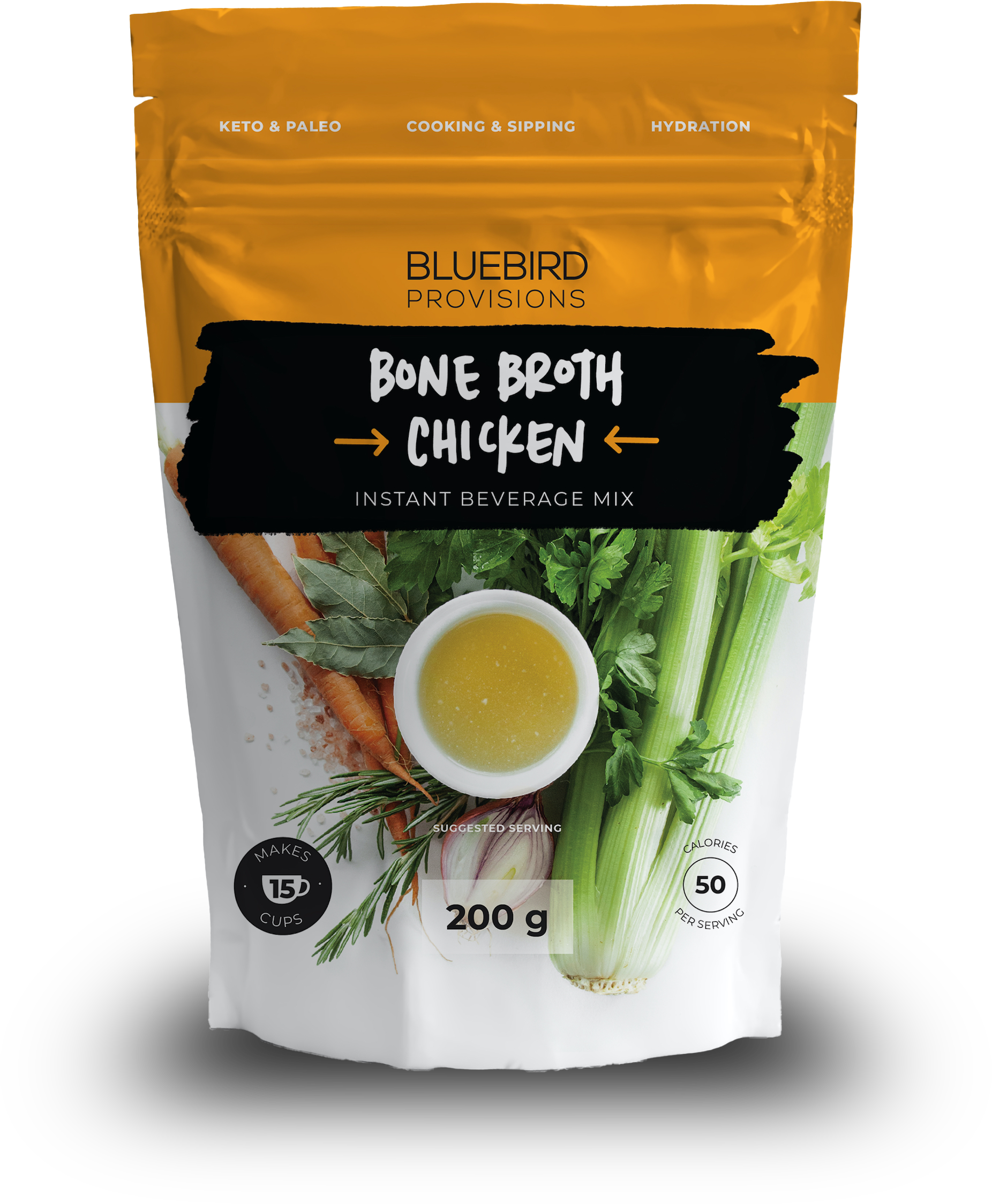
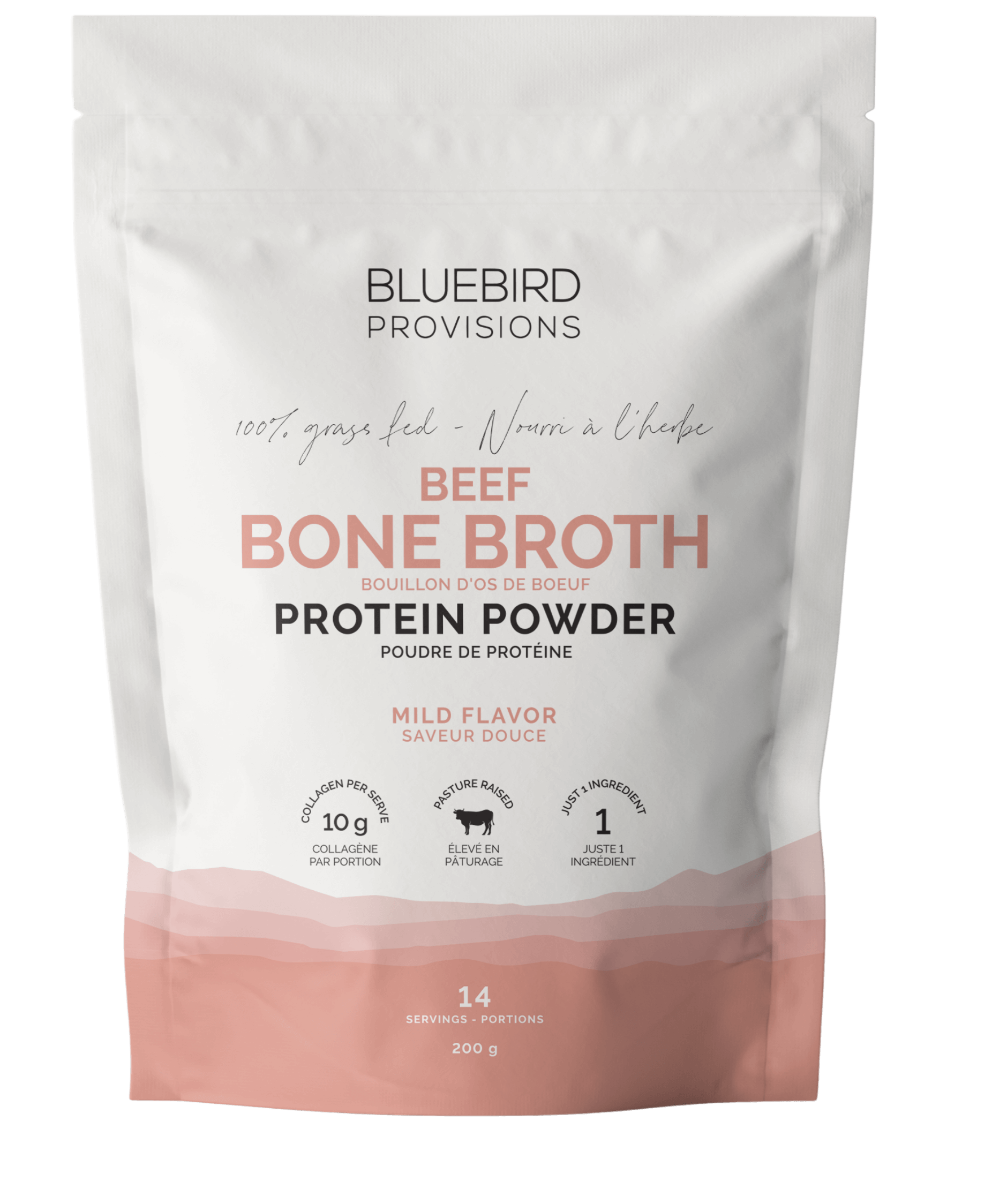
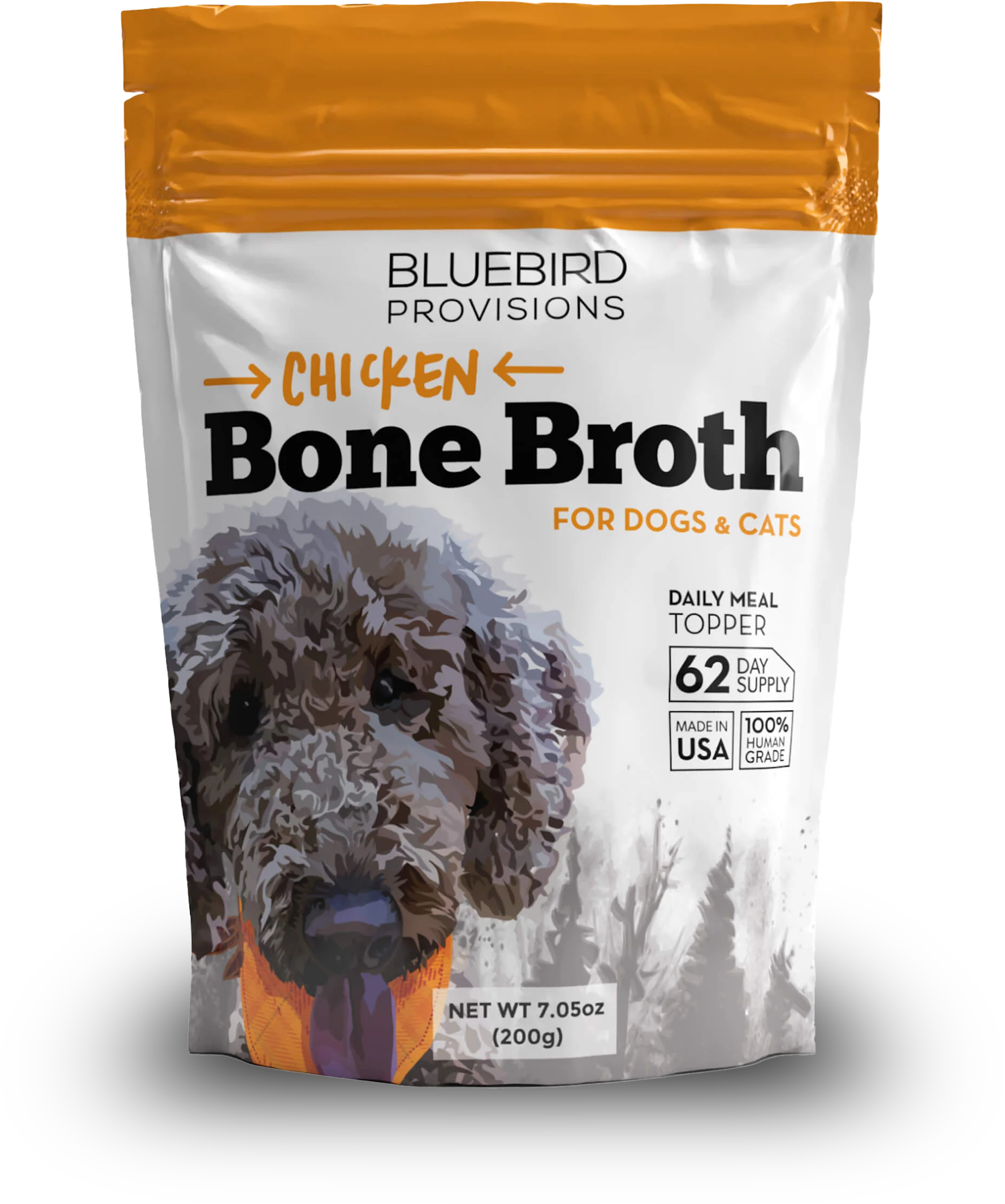
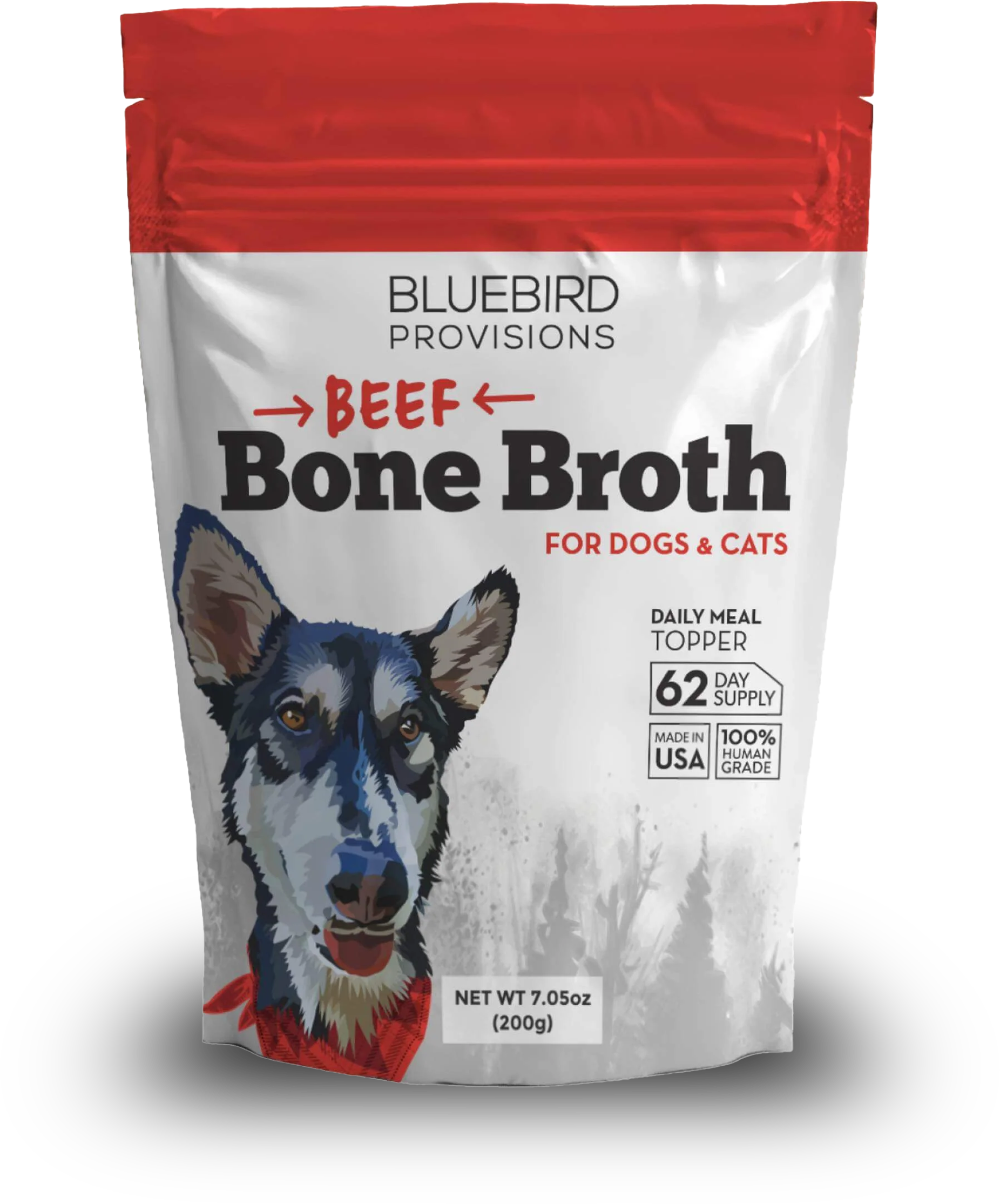
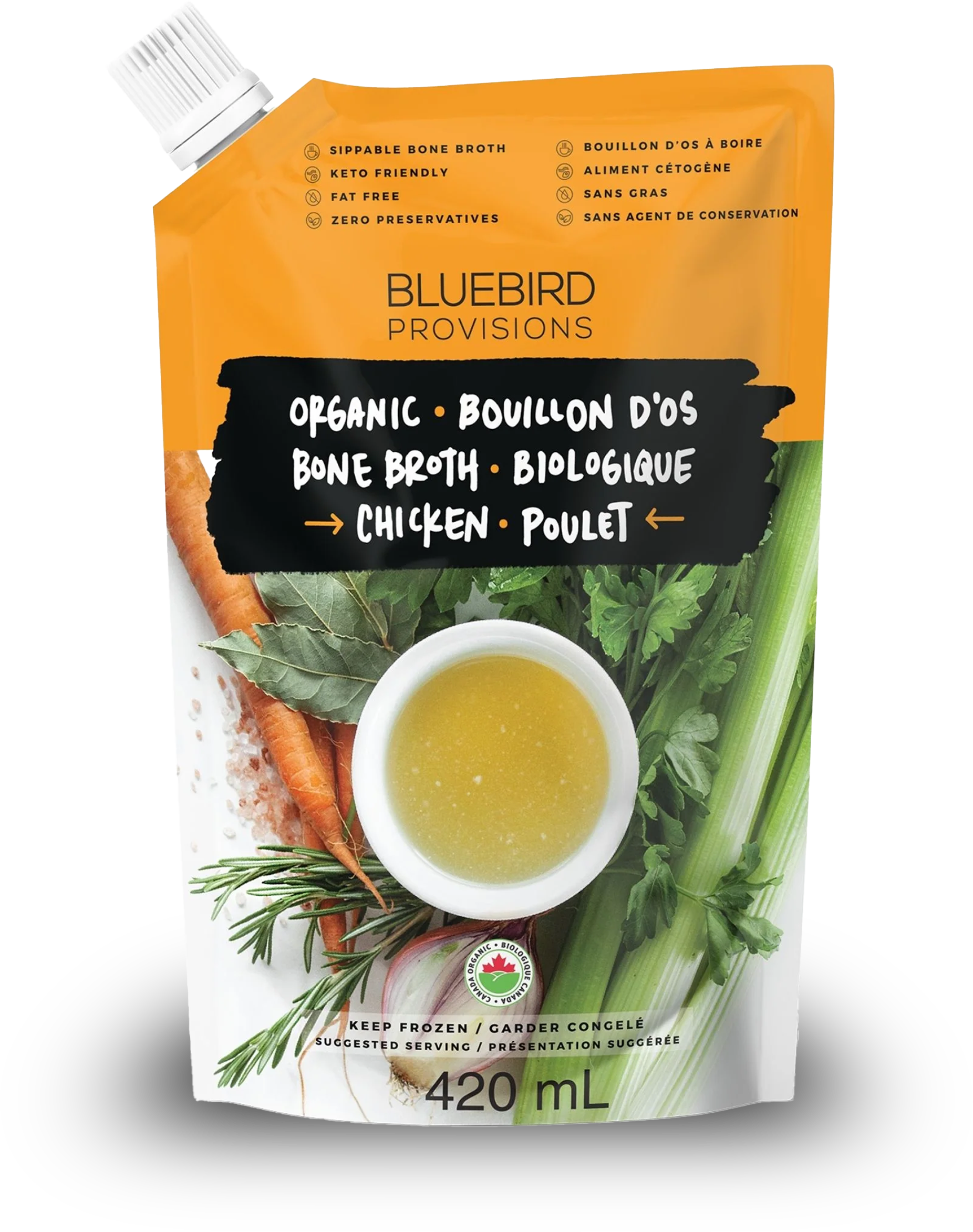
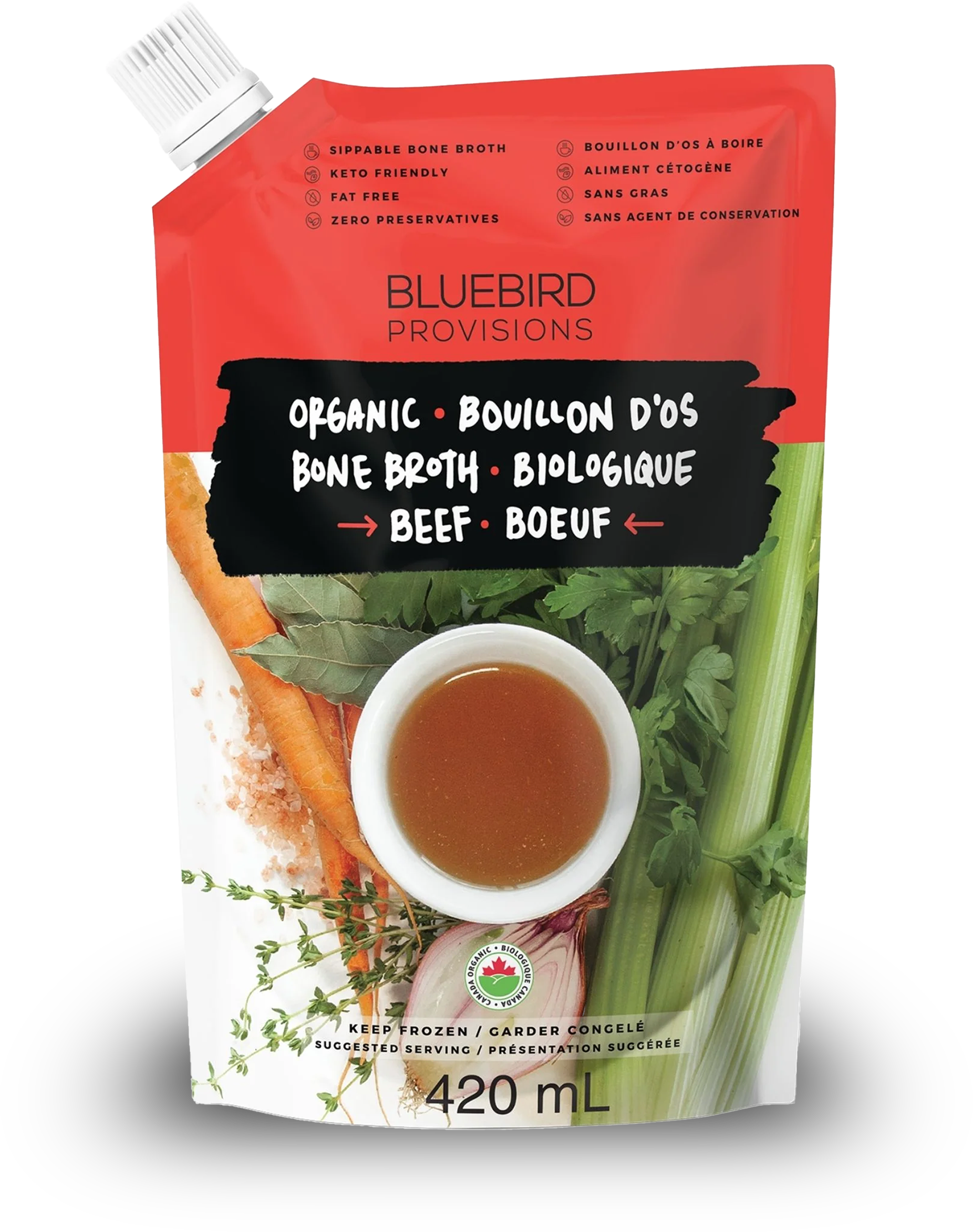
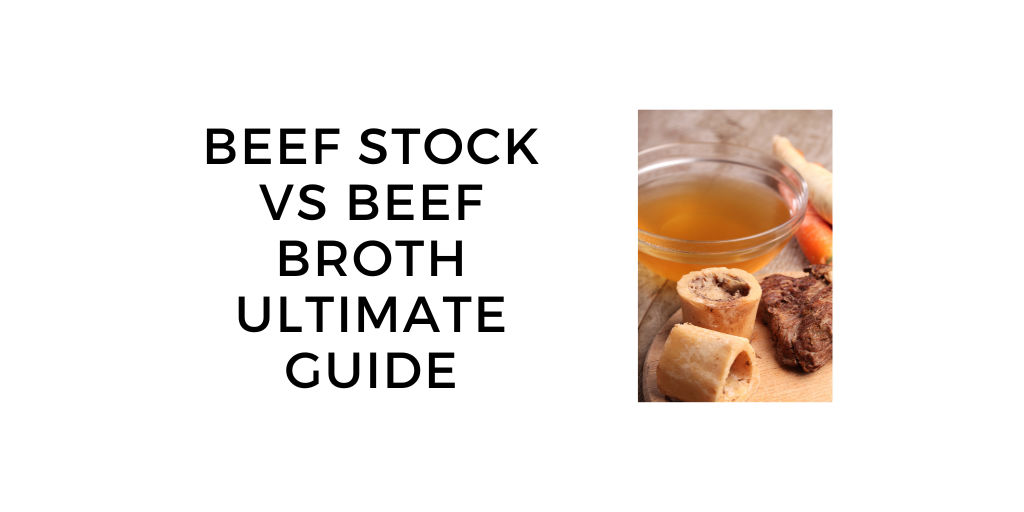

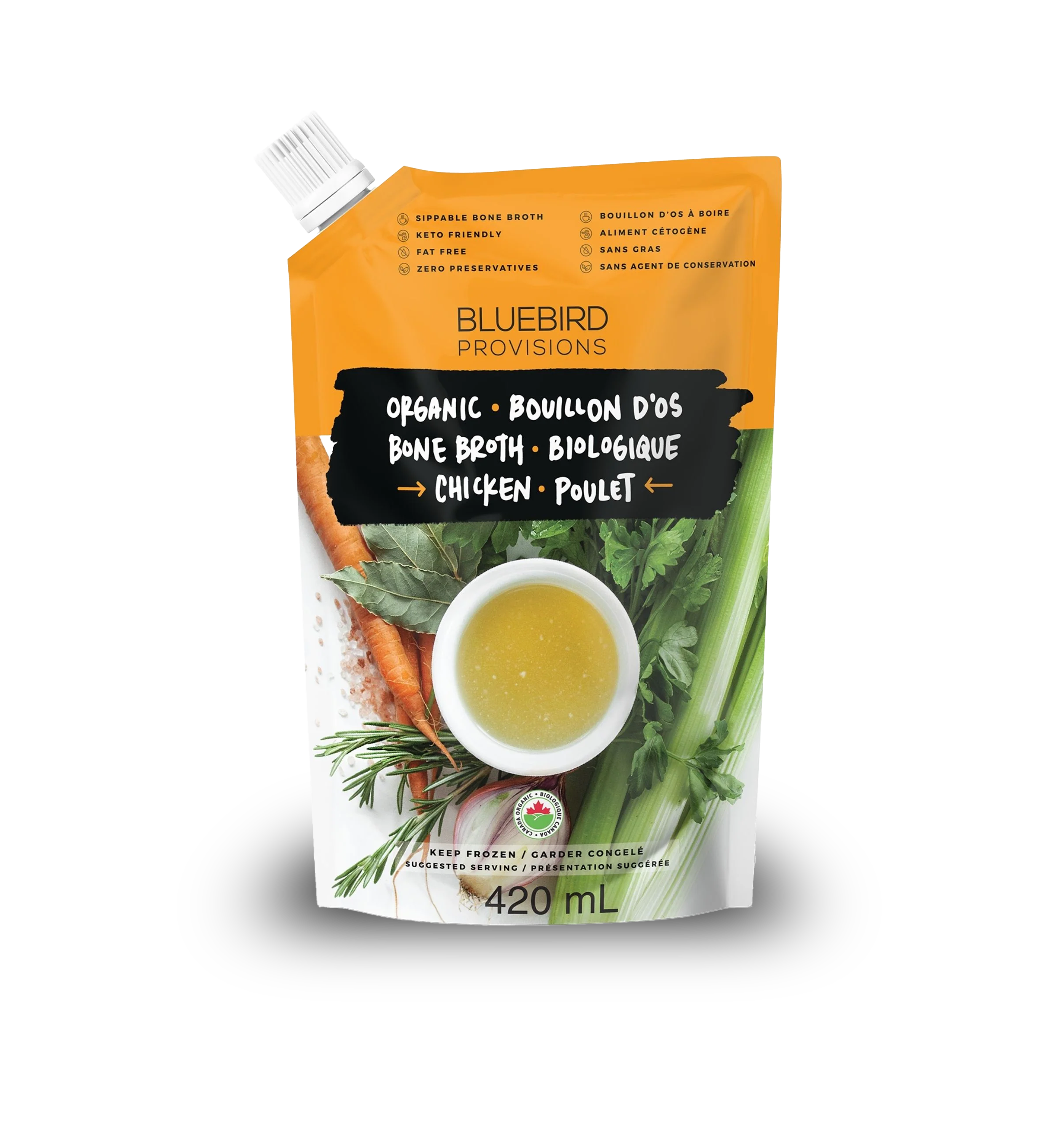
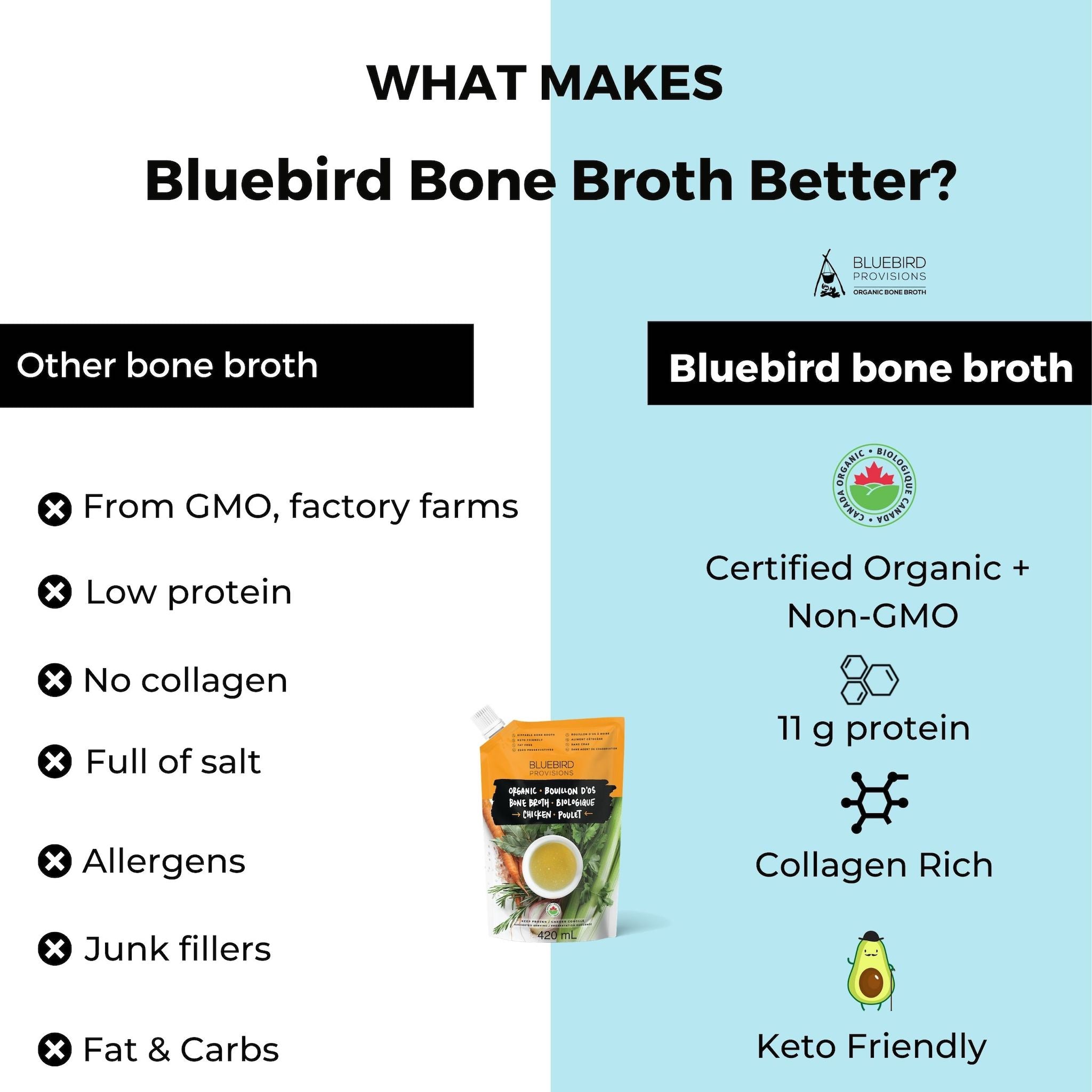
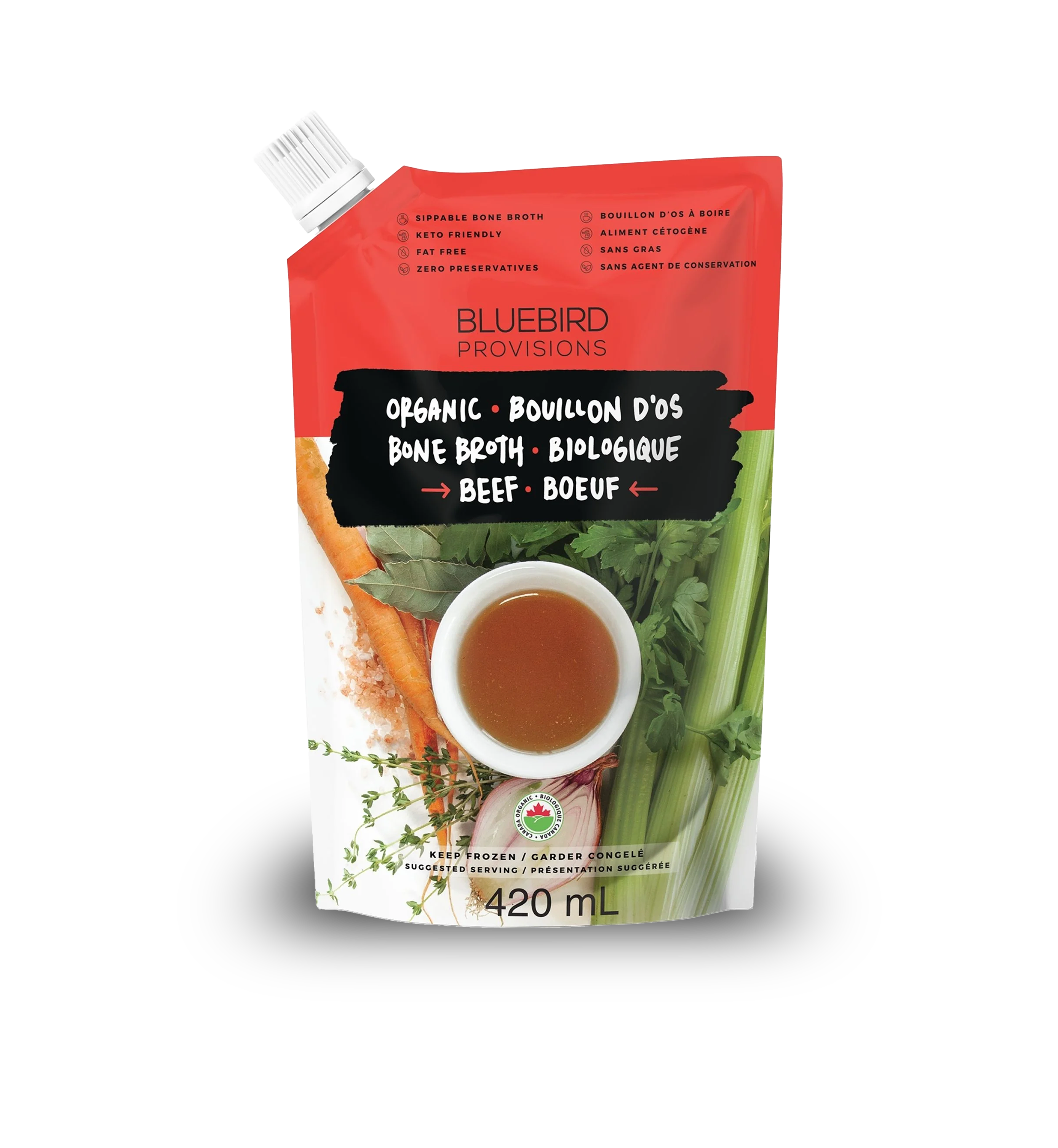
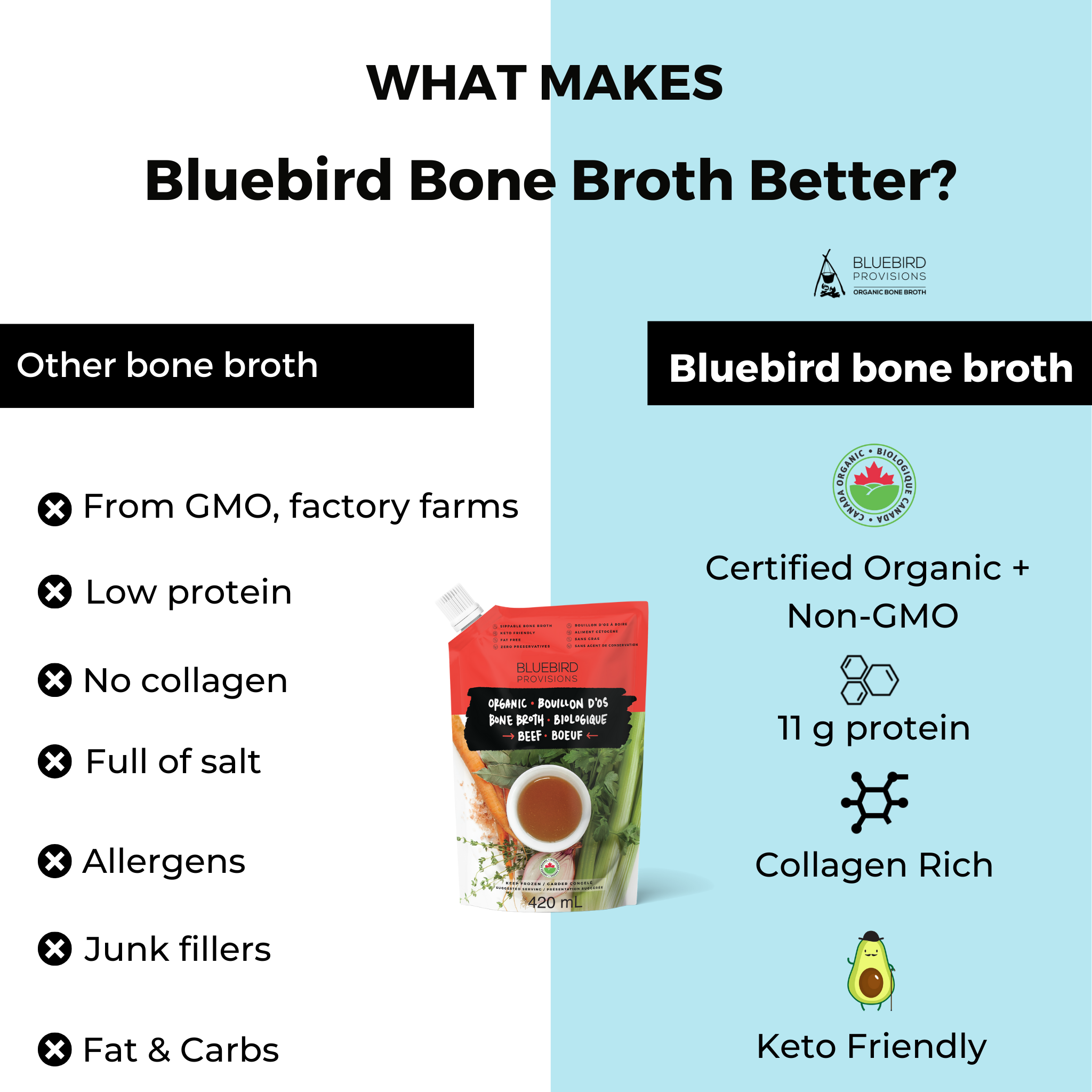
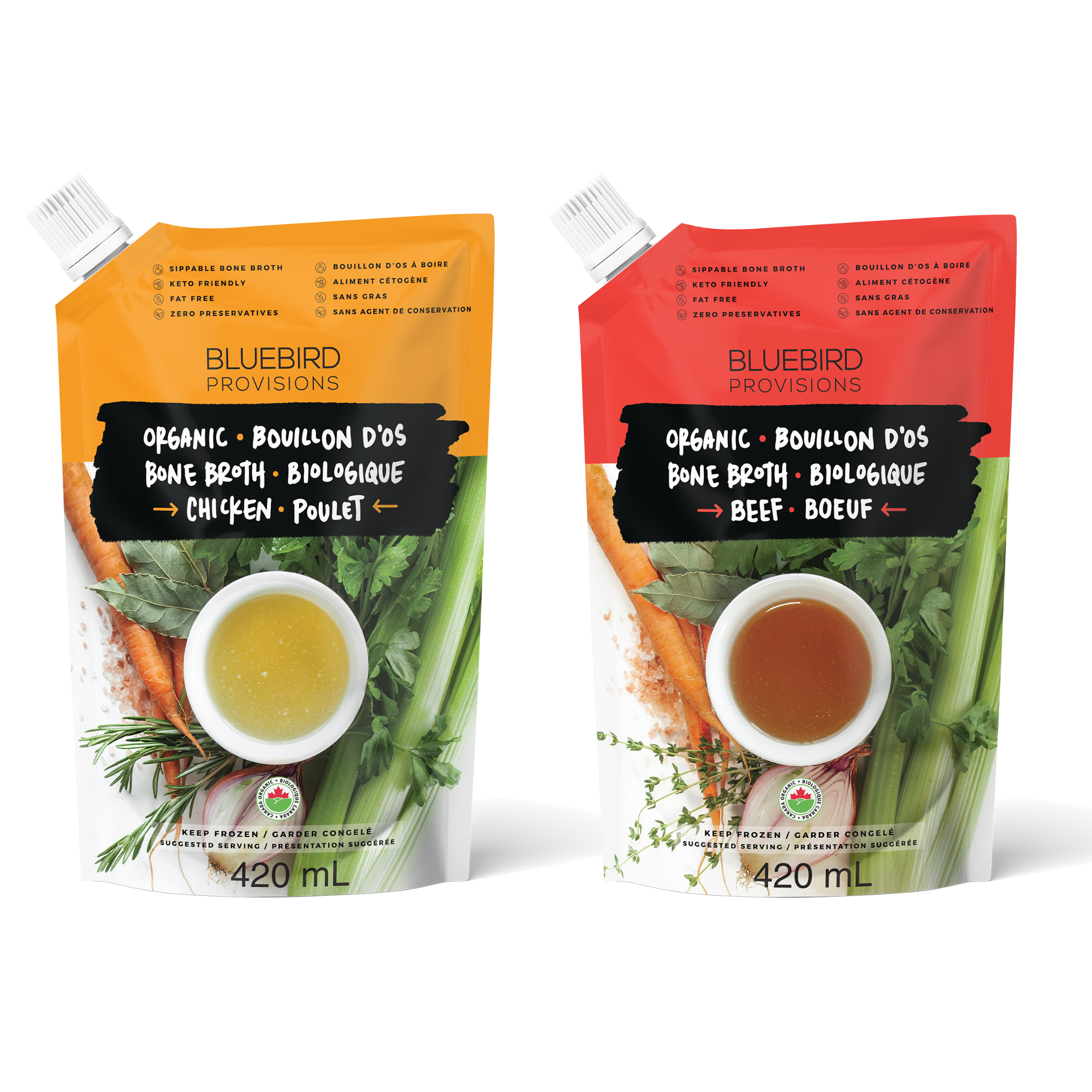

2 comments
Hi BHAustin, I am sorry to hear about this :(
I would consult a doctor who specializes in this. All the best and let me know how it goes.
Connor at Bluebird Provisions
Need help now. After bone Vertebroplasty and 3 weeks of pain earlier I developed what seems like IBS, I am 90 and up until then pretty healthy.
Can you help?
BHAustin
BHAustin
Leave a comment
This site is protected by hCaptcha and the hCaptcha Privacy Policy and Terms of Service apply.